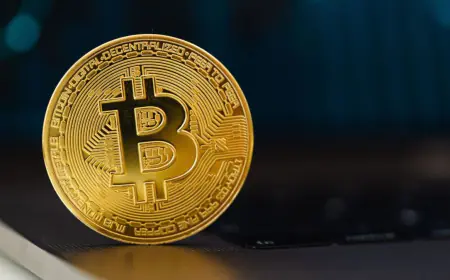Syria proposes to legalize Bitcoin for economic recovery
Syria, a country picking up the pieces after the collapse of the Assad regime, is preparing for a radical financial overhaul: Bitcoin legalization. The Syrian Center for Economic Research has proposed an ambitious plan urging the transitional government to adopt Bitcoin and other digital assets to address inflation, stabilize its economy, and attract global investments. […]

Syria, a country picking up the pieces after the collapse of the Assad regime, is preparing for a radical financial overhaul: Bitcoin legalization.
The Syrian Center for Economic Research has proposed an ambitious plan urging the transitional government to adopt Bitcoin and other digital assets to address inflation, stabilize its economy, and attract global investments.
The plan comes as the nation faces an insane challenge of reconstruction after decades of war and financial devastation.
The proposal focuses on using Bitcoin as a lifeline for Syria’s citizens and its crumbling financial system. It suggests a regulatory framework to legitimize the use of Bitcoin for trading, mining, and financial transactions.
A blueprint for Syria’s financial revolution
But they’re not stopping there. The Syrian pound is set to go digital, backed by gold, dollars, and Bitcoin itself, providing a much-needed anchor for the weak currency.
This approach could completely change the financial sector in Syria, where inflation and devaluation have eroded trust in traditional banking. “The central bank will oversee the process, ensuring it operates within a secure and accountable framework,” the proposal says.
Another key element of the plan is using Syria’s untapped energy resources for Bitcoin mining. Entrepreneurs will be allowed to mine Bitcoin, but not without oversight. The government intends to prevent monopolies and ensure the environmental and social impact of mining remains in check.
Financial institutions are also being brought into the fold. Banks, startups, and currency exchanges will be encouraged to integrate Bitcoin into their operations. This could simplify remittances for the millions of Syrians dependent on funds sent from abroad and offer a lifeline for businesses crippled by years of instability.
The proposal also says it wants citizens to retain full self-custody of their digital assets. Privacy and security are apparently front and center, with promises that users can transact freely without fear of interference, all while adhering to local and international laws.
Even before Bitcoin legalization became a possibility, crypto was already pretty popular in Syria, though perhaps not always for the right reasons. Groups like Hay’at Tahrir al-Sham (HTS), a key player in the opposition, have been using Bitcoin to fund their operations.
HTS has once been linked to al-Qa’ida, and has a history of raising money through crypto donations, despite international sanctions.
Its leader, Abu Muhammad al-Jolani, is incredibly controversial. Once a member of al-Qa’ida, he’s since distanced himself from the group and sought to rebrand HTS as a legitimate political force. But no one is believing him.
Obstacles and geopolitical twists
Now Syria’s financial overhaul faces a mountain of obstacles, starting with international sanctions. These restrictions have long isolated the country from the global financial system, and adopting Bitcoin could provoke further scrutiny. Though some experts believe that’s precisely the point.
Bitcoin’s decentralized nature offers a way to sidestep traditional banking systems, much like how Iran and North Korea do. Debt is another issue. The Assad regime left Syria burdened with loans and liabilities, adding another layer of complexity to any financial reforms.
On top of that, the infrastructure needed to support a digital economy—think cybersecurity, blockchain expertise, and internet access—remains a huge problem.
Geopolitics also complicates the situation. Syria has historically been a chessboard for powerful nations, with Russia and Iran playing major roles in propping up the Assad regime. Both countries have strong crypto economies, but their future involvement in Syria’s economic recovery is uncertain.
Meanwhile, neighboring countries like Türkiye and Lebanon have also embraced crypto to fight their own economic woes, setting the stage for potential regional partnerships—and rivalries.
From Zero to Web3 Pro: Your 90-Day Career Launch Plan
What's Your Reaction?









































































































